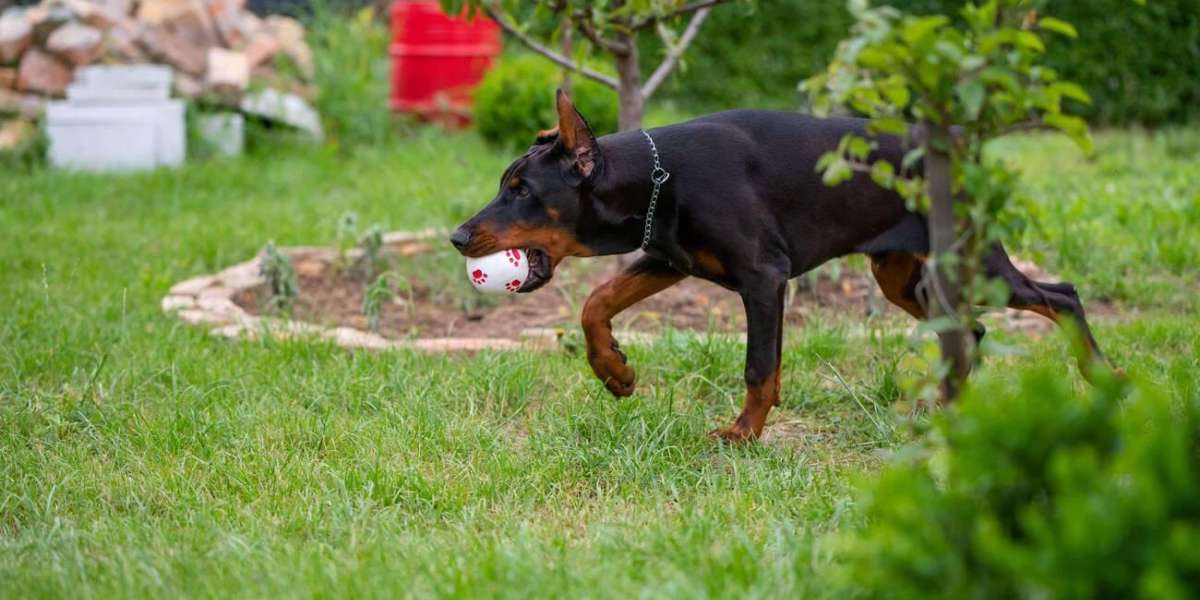European Doberman puppies are renowned for their intelligence, loyalty, and striking appearance. If you're considering welcoming one into your home, it's crucial to understand their specific care needs to ensure they thrive. Here’s a comprehensive guide to caring for a European Doberman puppy:
1. Choosing a Reputable Breeder
Start your journey by finding a reputable breeder who prioritizes the health and well-being of their dogs. Look for breeders who health test their breeding stock for genetic conditions such as dilated cardiomyopathy (DCM), hip dysplasia, and von Willebrand's disease, which are common concerns in Dobermans. A responsible breeder will provide health certifications for the puppy's parents and be transparent about any potential health issues.
2. Preparing Your Home
Before bringing your European Doberman puppy home, puppy-proof your living space. Remove any hazardous items or plants that they could chew on or ingest. Create a designated area with a comfortable bed or crate where your puppy can feel secure. Ensure your yard has a secure fence to prevent them from wandering off, as Dobermans are known for their curiosity and energy.
3. Nutrition and Feeding
Feed your European Doberman puppy a high-quality puppy food that meets their nutritional needs. Choose a food specifically formulated for large breed puppies to support their growth and development. Avoid overfeeding to prevent obesity, which can exacerbate joint issues. Consult your veterinarian for advice on feeding schedules and portion sizes based on your puppy's age, size, and activity level.
4. Socialization and Training
Early socialization is crucial for European Doberman puppies to help them become well-adjusted adults. Introduce them to various people, animals, sights, and sounds in a positive manner to build their confidence and prevent fear-based behavior. Begin obedience training early using positive reinforcement techniques such as treats and praise. Dobermans are intelligent and eager to please, making them responsive to training.
5. Exercise Requirements
European Dobermans are active dogs that require regular exercise to stay healthy and mentally stimulated. Aim for at least one hour of exercise per day, which can include walks, runs, playtime, and interactive games. Mental stimulation is equally important, so incorporate training sessions or puzzle toys to keep their minds engaged. Lack of exercise can lead to boredom and destructive behaviors.
6. Grooming Needs
Fortunately, European Dobermans have a short, sleek coat that requires minimal grooming. Brush their coat weekly to remove loose hair and distribute natural oils. Bathe them as needed, typically every few months unless they get exceptionally dirty. Regularly trim their nails, clean their ears, and brush their teeth to maintain overall hygiene and prevent dental issues.
Conclusion
Caring for a European Dobermann puppy involves dedication, patience, and knowledge of their specific needs. By choosing a reputable breeder, preparing your home, providing proper nutrition, initiating early socialization and training, meeting their exercise requirements, and attending to grooming needs, you can ensure your puppy grows into a well-behaved and healthy adult dog. European Dobermans are loyal companions who thrive in loving homes where they receive adequate attention and care. With this ultimate guide, you're well-equipped to provide the best possible care for your European Doberman puppy, setting the foundation for a rewarding lifelong relationship.








